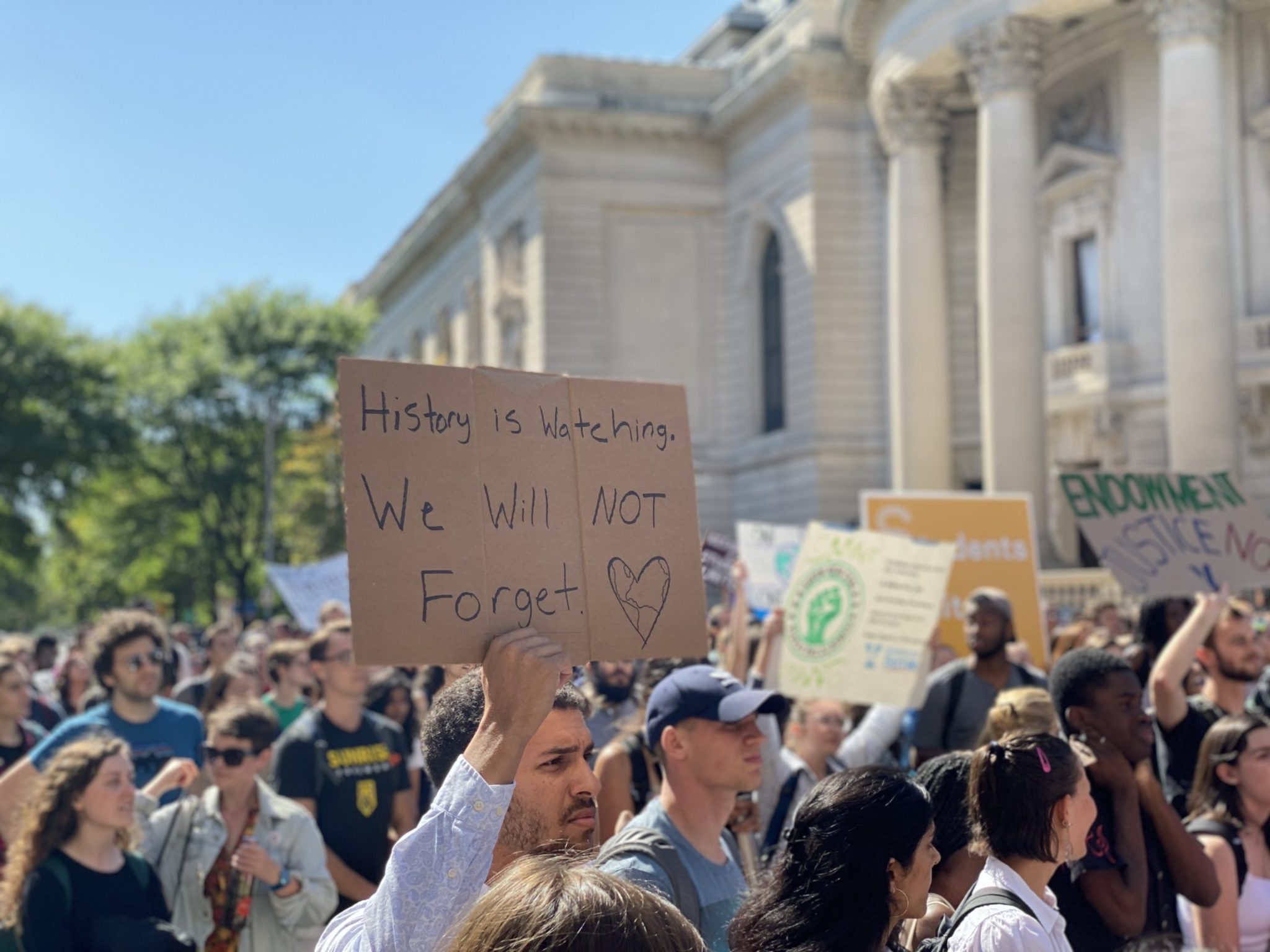
Being at Yale is political. Throughout the two years I’ve attended this venerable institution, I have not infrequently thought about power. Do I have that now? Should I? The early months of my first year were dominated by the anxiety surrounding the Kavanaugh confirmation hearings, the latter half consumed with admissions scandals. This year thrummed with the energy of the Yale-Harvard divestment protests and the University’s austerity measures and grading policies mid-pandemic.
Throughout this time, I’d been signing petitions and attending rallies, visiting debates and hosting them, reading the newspaper and wishing I’d just stuck to the crossword. At Yale, a person who loves politics is never bored. A person who hates to love politics like I do is downright manic.
I envisioned this column as a comprehensive guide to tackling Yale as a political space, the sprawling campus requiring a constant form of political hopscotch. Instead, I’ve decided to prepare you for the moments when Yale’s political sphere is overwhelming and scary, when you get burned or blindsided and when politics gets personal.
Yale is frequently portrayed by outside media as politically homogeneous, the university a mad, sex-crazed breeding ground for commies and their Berniecrat protégés. These portrayals are all over Rupert Murdoch-owned publications, some endorsed by former Yalies themselves. They work, too — I get asked at every family gathering how things are going with the “Libs.” For those of you hoping to find or dreading that vision of Yale, I regret to inform you that it does not exist.
Instead, the Yale political sphere is boring and maddening, lackluster and fascinating. Liberalism dominates at Yale, yes, but it’s a form of small-L liberalism cultivated by the very university itself. Peter Salovey regularly reminds us of his commitment to free speech and intellectual liberalism. Ideas run amok in seminar and over coffee. I have never been to a place where I am as overloaded with intellectual content as I am while on Yale’s campus. I doubt I will ever be anywhere like it after my four years here have elapsed.
Still, I caution against seeing this space as something greater than it is. We hear new ideas in seminar and during class, say words and police them, offer comments and regret them. Just because Yale is a liberal space does not mean that we act charitably to one another — or that we all deserve charity. Instead, there is room for people to say offensive things they shouldn’t. There’s room for people to say too many things, as you will all discover when you take your first seminar. There’s room for people to shut you out for what you say. There’s room for those people to be right.
All of this is to say that the liberal sphere Yale cultivates often favors those who, paradoxically, talk loudly and often but have the least amount to say. This means that Yale’s culture doesn’t gravitate toward the left. It gravitates, instead, toward the center because the center poses the least risk. It asks the least of us in our future choices, expects so little of our behaviors and presents the easiest path toward acceptance into the social fold.
The problem with this approach is that Yale students do have power. Even though we are often portrayed inaccurately, national media watches our actions on this campus like they do few others. That indicates power. It means that our protests are seen on national television and that the policy changes we push for make the pages of The New York Times. It means that our classmates and peers are often contributing to national news production. But often, this causes us to retreat. We recognize the power we have and choose to walk away, choosing self-preservation over our political projects.
Still, I am writing this column because I hope that you use the time afforded to you at Yale to become something more interesting, to navigate Yale’s political sphere not as a space that you should glide through with caution — or worse, avoid entirely — but directly challenge, engage with and emerge stronger from. I hope you canvass a dormitory on a Sunday afternoon, even if it makes for awkward conversation. I hope you make a comment in a seminar that falls flat. I hope you’re not “owning the Libs” — or at least owning them without getting “owned” yourself. It’s not that I expect you to be charitable or that I expect other people to be charitable to you. It’s that I expect you to learn, as I have, that Yale students are political actors. And good political actors mess up. More than that, though, good political actors know what’s worth fighting for — in the line at Durfee’s, over the seminar table, and surrounding the Women’s Table on Cross Campus.
This is discourse. And — just like anyone who loves to hate politics — I love it. You should, too.
MCKINSEY CROZIER is a junior in Timothy Dwight College and a staff columnist. Contact her at mckinsey.crozier@yale.edu .






